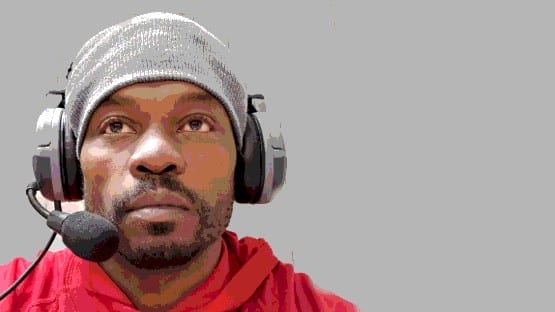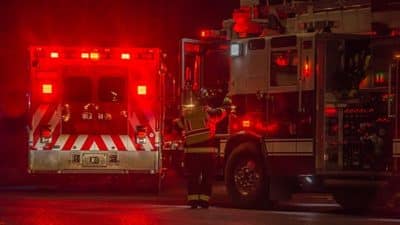Virginia has received a $9.76 million federal grant to help fight the opioid epidemic.

“We have seen the horrible toll that opioids have taken on our communities,” said Governor McAuliffe. “Virginia’s Medicaid program has done an excellent job of expanding the types of services it covers, but without Medicaid expansion, many individuals who could benefit from treatment are unable to afford it. These grant funds will help pay for the necessary medications as well as counseling and other support services that individuals need to successfully recover.”
The grant money will be used to purchase medication, support medical staff necessary to prescribe and oversee clinical treatment, and remove barriers to access, such as transportation.
These funds will also help provide the counseling and case management necessary to help individuals with opioid addiction stabilize their lives and begin the process of recovery. The project will strengthen and utilize existing local community coalitions that have formed across the Commonwealth to address this issue, building upon activities underway with Governor McAuliffe’s Executive Leadership Team on Opioid Abuse and Addiction.
In 2016, more than 1,100 Virginians died from an opioid overdose, including prescription opioids, heroin, and fentanyl. Virginia emergency departments reported more than 10,000 visits for opioid and heroin overdose treatment, and EMS workers reported more than 4,000 uses of naloxone, an overdose-reversal drug.
“When it comes to fighting the opioid epidemic, every dollar counts,” said Secretary of Health and Human Resources Dr. Bill Hazel. “We know medication assisted treatment can help people recover from addiction, and this grant helps us provide that assistance to more Virginians.”
During the 2017 session, the General Assembly offset $5 million in ongoing funds for medication assisted treatment and Project REVIVE! in anticipated receipt of this federal grant. However, this grant funding is only available for one year and additional funds will need to be allocated if these efforts are to continue.
“Because the funds are only guaranteed for one year, we wanted to use the money where it will have the greatest impact,” said Dr. Jack Barber, DBHDS Interim Commissioner. “In addition to supporting proven, community-based prevention practices, funds will help individuals access medications that are known to be effective in treating addiction.”
Grant funds will be used to fight the opioid epidemic in the following ways:
- DBHDS will allocate $5 million of the total grant funds to 18 locally run community services boards (CSBs), the organizations that are responsible for providing community-based behavioral health services. These funds are to be used to increase access to medication assisted treatment, which is a nationally recognized treatment for opioid addiction.
- The remaining $4.7 million of the grant will be used in the following areas:
o Support opioid prevention services in an additional 14 communities where data indicate emerging need,
o Increase access to naloxone, a medication that reverses opioid overdose when administered quickly. The DBHDS-sponsored REVIVE! program has trained approximately 6,000 laypeople in the provision of naloxone since 2014. While Naloxone is available through a standing order at any pharmacy in Virginia, it can be cost-prohibitive to some who need it. Grant funding will be used to help make naloxone available at reduced rate. Support the development of five pilot projects to provide assistance to individuals who are treated for opioid overdose in emergency rooms.
The 18 CSBs who will develop medication assisted treatment programs were selected as part of the grant application based on statistical measures of need. Amounts to each community are currently being determined, and will also be based on need such as overdose rates and other factors. The 18 CSBs include:
- Blue Ridge Behavioral Healthcare – Roanoke, Virginia
- Chesterfield Community Services Board – Chesterfield, Virginia
- Cumberland Mountain
- Danville-Pittsylvania
- Dickenson
- Goochland-Powhatan
- Highlands
- Mount Rogers Community Services Board – Wytheville, Virginia
- New River Valley
- Norfolk
- Northwestern
- Piedmont
- Planning District One
- Portsmouth
- Rappahannock Area
- Rappahannock-Rapidan Community Services Board – Culpeper, Virginia
- Richmond Behavioral Health Authority, Richmond, Virginia
- Virginia Beach
Medication assisted treatment and other addiction treatments are part of DBHDS’ System Transformation Excellence and Performance (STEP-VA), an innovative initiative for individuals with behavioral health disorders featuring a uniform set of required services, consistent quality measures, and improved oversight in all Virginia communities. The next phases of STEP-VA include completing the work required for all of Virginia’s CSBs to implement Same Day Access, the installment of primary care screening and tight linkages to medical providers in all CSBs, addressing existing gaps in outpatient services, including ensuring ongoing medication assisted treatment for substance use disorders, and improving targeted case management services for children.










